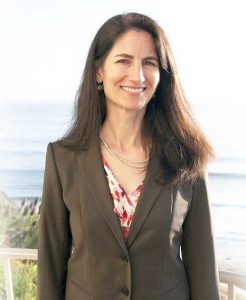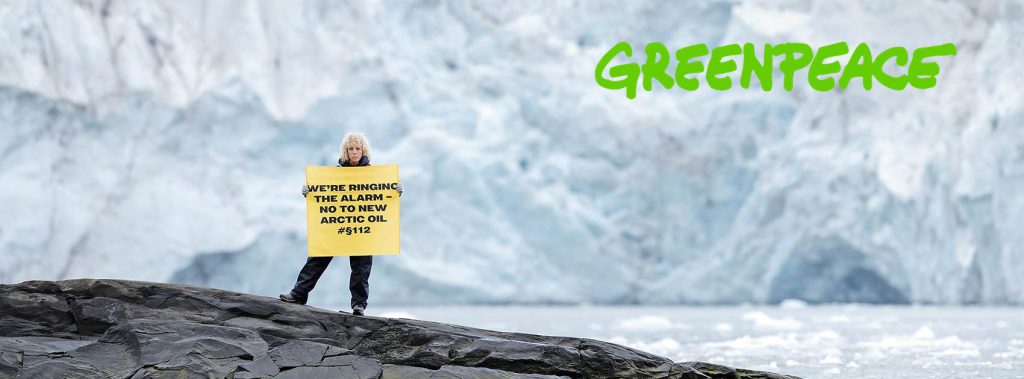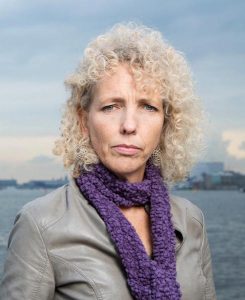Ep. 100: Janis Searles Jones – CEO, Ocean Conservancy ||

Ocean Conservancy educates and empowers citizens to take action on behalf of the ocean. From the Arctic -to- the Gulf of Mexico -to- the halls of Congress, Ocean Conservancy brings people together to find solutions for our blue planet. Driving forward progress built on science, policy, advocacy, and citizen engagement, for 48 years, Ocean Conservancy has fought relentlessly to protect the ocean and its wildlife we rely upon.
Thanks to these efforts tangible progress has been made on a range of issues including ocean plastic pollution, smart ocean planning, sustainable fisheries, ocean acidification and sea turtle protection. The ocean is the great global commons and the Ocean Conservancy keeps that sentiment front and center for key policymakers in the U.S. and abroad. This approach allows us, mankind, to become better shepherds of the bounty of the sea and preserve the sanctity of our oceans for generations to come.
.
 In our 50 minute discussion we learn about the lineage and focus of the Ocean Conservancy. I ask Janis Searles Jones, CEO of the Ocean Conservancy, about the organization’s strategic priorities and how they have evolved since she has taken the leadership role in 2017. We learn about their diverse ocean health efforts, and about what has successfully percolated to the domain of public knowledge. We hear what’s really working and how certain pathways to broader awareness – initiatives focused on the likes of plastic straws & sea turtles – are serving as an impetus to drive real change by empowering end users, consumers and voters. We discuss the state of biodiversity in our oceans and the capacities for the seas to continue to keep buffering the excess amounts of heat and carbon we’re spewing into the atmosphere. We learn what Ocean Conservancy is doing to instigate climate action in projects ranging from local clean-up initiatives, all the way up to global policy making in multi stakeholder relationships like the Paris Accord.
In our 50 minute discussion we learn about the lineage and focus of the Ocean Conservancy. I ask Janis Searles Jones, CEO of the Ocean Conservancy, about the organization’s strategic priorities and how they have evolved since she has taken the leadership role in 2017. We learn about their diverse ocean health efforts, and about what has successfully percolated to the domain of public knowledge. We hear what’s really working and how certain pathways to broader awareness – initiatives focused on the likes of plastic straws & sea turtles – are serving as an impetus to drive real change by empowering end users, consumers and voters. We discuss the state of biodiversity in our oceans and the capacities for the seas to continue to keep buffering the excess amounts of heat and carbon we’re spewing into the atmosphere. We learn what Ocean Conservancy is doing to instigate climate action in projects ranging from local clean-up initiatives, all the way up to global policy making in multi stakeholder relationships like the Paris Accord.
.
We discuss seafood and the state of our global fisheries. In our chat we learn how we may or may not be able to continue to feed over 3 billion global citizens reliant on seafood as their main caloric intake – on oceans threatened to be exhausted within a decade. I ask about Searles Jones’ interest and enthusiasm for Regenerative Ocean Farming. How this smart and pragmatic management practice of generative natural resources can spawn a sea change in our relationship and management of the oceans.
.
BIO: Janis Searles Jones champions the work of the Ocean Conservancy’s fight against the growing threats of oil and gas development, increased maritime shipping, overfishing, contamination and climate change. As CEO of Ocean Conservancy, Searles Jones helms the efforts of this leading conservation organization’s strategic direction to preserve the health of our oceans – bringing her passion, logic and commitment to their work throughout global waters. Searles Jones is a respected expert in the marine conservation field – authoring numerous pieces on the sustainable use and proper management of ocean resources. Janis was a 2017 Pew Marine Fellow, and prior to taking the leadership role at the Ocean Conservancy – she was senior regional counsel and policy advisor for Oceana, and the staff attorney for the Alaska office of Earthjustice.
.
We must stop exhausting the health of oceans in our mining of biodiversity and exploitation in using them as our dumping grounds. Representing 70% of the face of the panet, oceans constitute our best opportunity to balance a planet under threat by enveloping the ideas of systems thinking which will save our own asses through investing in the well being or others. It’s an opportunity to coexist with life on the planet by stepping-up and acting as a steward of the seas.
.
Janis Searles Jones book recommendations:
- “The Sea Around Us” – Rachel Carson – 1951
- “The Edge of the Sea” – Rachel Carson – 1955
- “All We Can Cave: Truth, Courage, and Solutions for the Climate Crisis” – Ayana Elizabeth Johnson & Katharine Wilkinson – 2020
.
photo credit: Ocean Conservancy & Jasmine Ive




 A focus area of our conversation is the utilization and shepherding of regenerative natural resources. Specifically, with the production of food. What humans eat from land and sea has a vast impact on the planet and its inhabitants. In our conversation we explore how
A focus area of our conversation is the utilization and shepherding of regenerative natural resources. Specifically, with the production of food. What humans eat from land and sea has a vast impact on the planet and its inhabitants. In our conversation we explore how